The condition of tooth pulp damage often causes uncomfortable pain. Root canal treatment is an important step to prevent widespread infection. However, many people wonder whether ” Does a Root Canal Filling Hurt ” . Let’s explore below.
What is root canal treatment?
Root canal treatment is a method of restoring teeth after treating tooth pulp. This is a complex process that requires skill, experience, and specialized equipment to remove infected pulp before performing restorative tooth filling.
The root canal filling process typically includes the following steps: The dentist will open the pulp chamber to remove the infected pulp, then clean the pulp chamber. Next, the pulp chamber will be prepared and filled with restorative material to seal the pulp chamber, while restoring the original shape of the tooth.
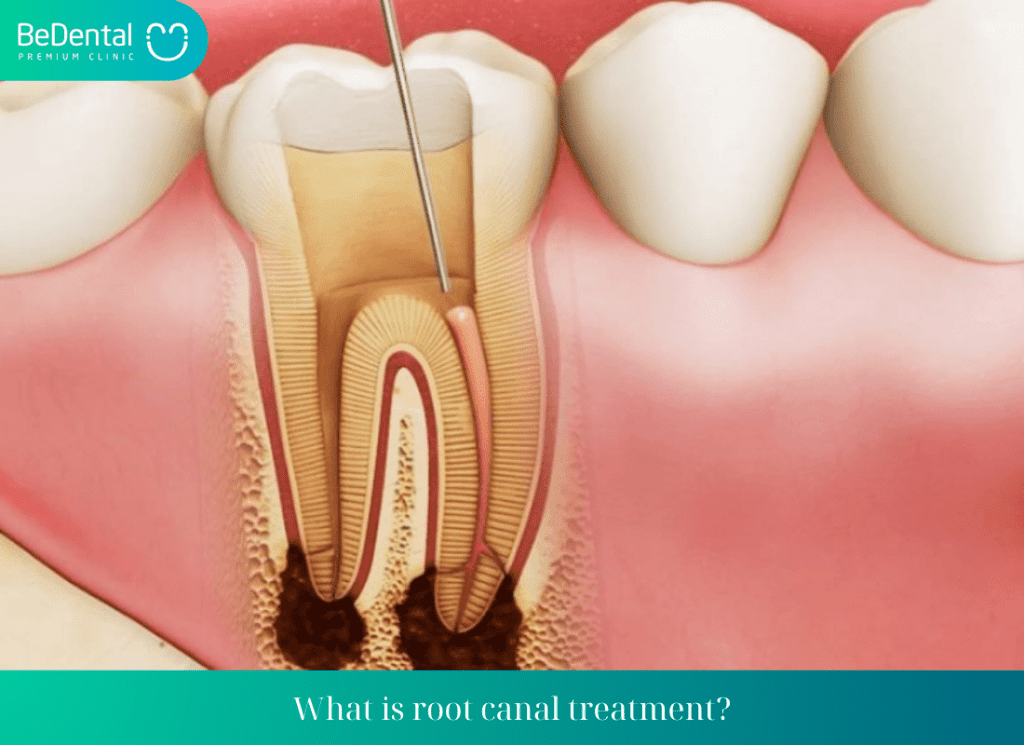
When is a Root Canal Necessary for a Dental Filling?
Dental filling is a method in dentistry used to address issues such as tooth decay, tooth fractures, and more. The decision on whether to perform a root canal when filling a tooth typically depends on the extent of the tooth damage.
Root canal filling involves two stages: first, root canal treatment, and then the filling process. During root canal treatment, the dentist will remove the inflamed pulp from the tooth.
Cases for Dental Filling Without Root Canal
If the damage is mild and has not affected the tooth pulp, it is not necessary to perform a root canal before filling. Cases such as mild tooth decay, slight tooth fractures, sparse teeth, or misaligned teeth typically do not require root canal treatment before filling. In these cases, the filling process is usually simple and gentle, quickly addressing the problems.
Cases Requiring a Root Canal
When a tooth shows signs of infection such as pain from tooth decay, damage to tooth tissue, pulp exposure due to trauma, or risk of infection, the dentist will usually perform an examination and take X-rays to accurately assess the extent of the damage. In cases of severe damage where the pulp cannot be preserved, the dentist will decide to perform a root canal before proceeding with the filling.
Pros and Cons of Root Canal Fillings
Filling a tooth after a root canal is considered an effective and safe treatment for tooth decay. Before deciding on a root canal filling, it’s important to understand the Pros and Cons of Root Canal Fillings
Advantages of Root Canal Fillings:
- Preserves the natural tooth: Timely treatment of pulp infections helps prevent infections, abscesses, and permanent tooth loss.
- Improves chewing function: After a root canal filling, patients no longer experience the pain from tooth decay, improving chewing function and protecting the tooth better.
Disadvantages of Root Canal Fillings:
- The tooth may become more prone to fractures after root canal treatment and filling, as the tooth structure can become brittle.
- To prolong the lifespan of the tooth after a root canal, opting for a dental crown can be a good solution to protect the tooth from external forces while also ensuring aesthetics and chewing function.
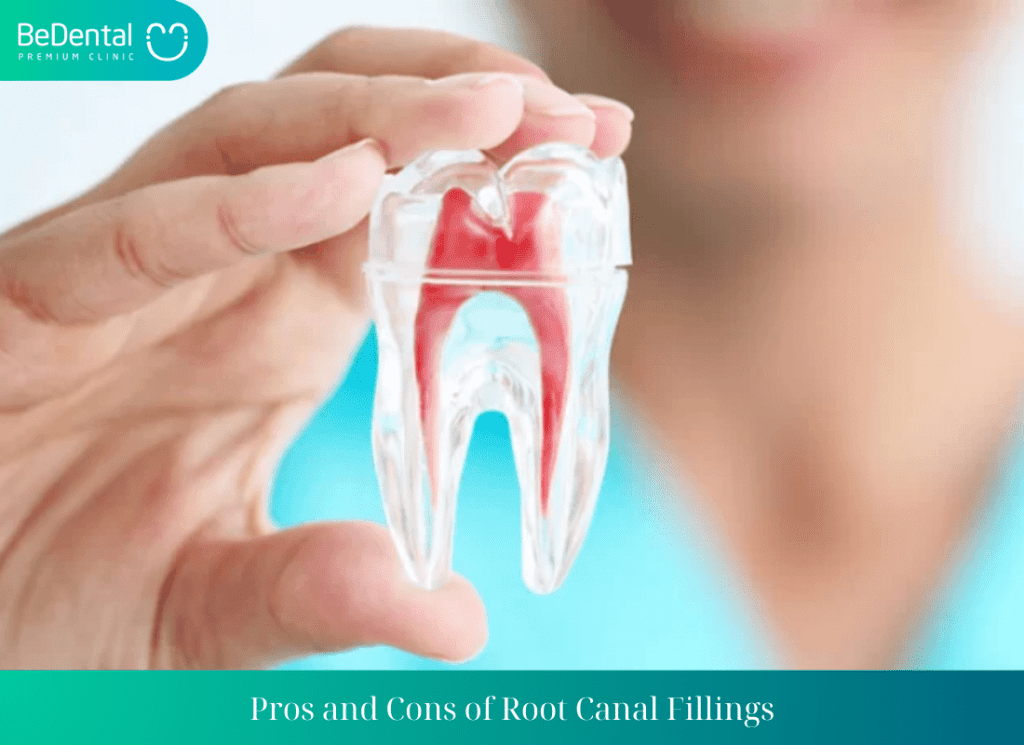
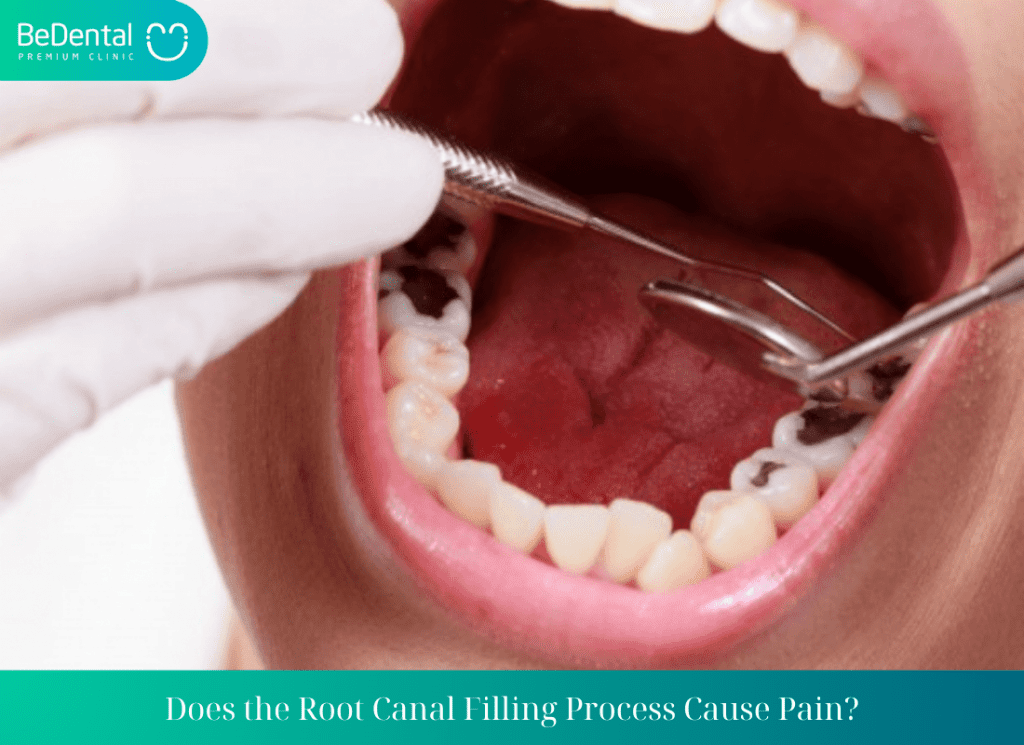
How to Address Pain After a Root Canal Filling
Regardless of the cause of pain following a root canal, it’s crucial to visit a dental clinic immediately. The dentist will conduct an examination, take X-rays, and recommend the most appropriate treatment.
See more: At what age can children get braces
If the pain is due to improper filling of the root canal or an inaccurate restoration, the dentist will remove the existing material and re-do the restoration, ensuring the filling is correctly placed and sealed tightly. If the issue is incomplete pulp removal, the dentist will fully remove the remaining pulp before re-filling the tooth. In cases where a perforation of the pulp floor or apex is discovered and cannot be repaired, the dentist may suggest extracting the tooth. After extraction, an implant is recommended to maintain both aesthetics and chewing function.
In conclusion, pain after a root canal filling is an abnormal sign that should not be ignored. To avoid this situation, choose a reputable dental clinic with modern equipment and professional dentists. This will help minimize the risk of unwanted complications.
Consequences of Improper Tooth Filling
If the filling process is not done carefully, the filling material can impact the tooth pulp, causing discomfort and pain. If the filling is too deep, it may further damage the enamel and pulp, potentially leading to tooth extraction to prevent the spread of damage to surrounding teeth.
See more: Why do gums swell when getting braces
Frequently Asked Questions About Tooth Filling
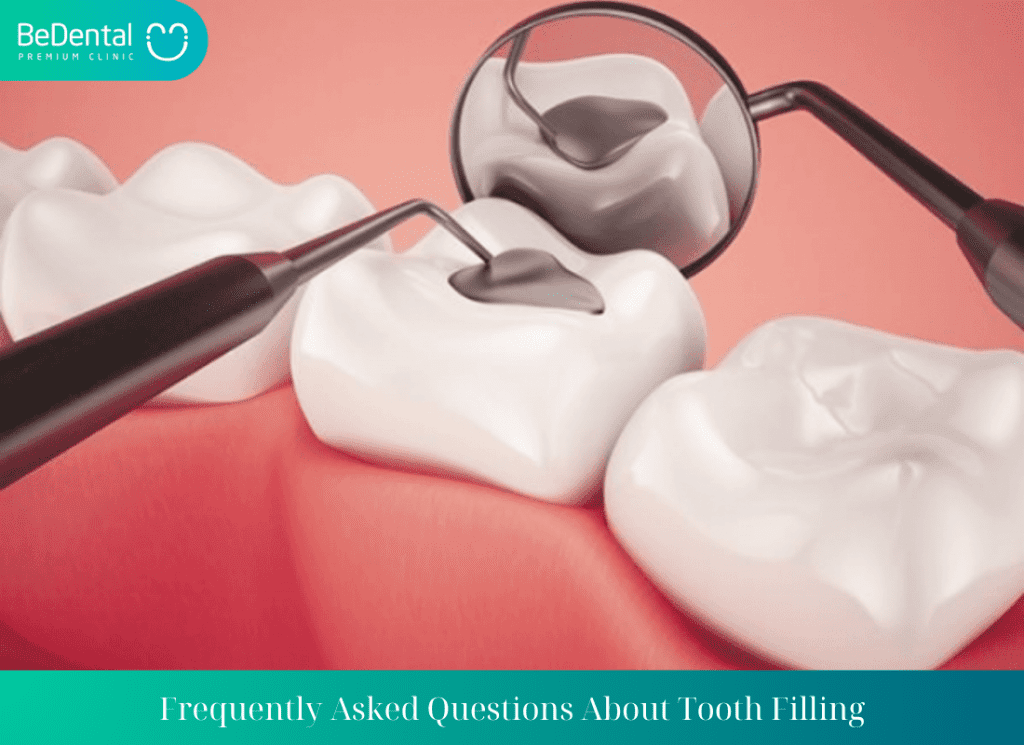
Can a Filled Tooth Decay Again?
Even after a tooth is filled, there’s still a chance you might experience recurring tooth decay. However, if you maintain proper oral hygiene and the dentist performs the filling correctly, the likelihood of a second decay significantly decreases. Conversely, if decay does recur, it may be more severe than before due to enamel erosion making the tooth weaker.
Sensation After a Tooth Filling
After a filling, the tooth might become more sensitive to air, food, and temperature. Typically, this sensitivity will decrease after a few weeks, and the tooth should return to normal without the need for pain medication. However, if you experience pain while biting food, it could be an issue with the filling, and you should see your dentist promptly for evaluation and adjustment.
Durability of Cosmetic Fillings
According to dental experts, the average lifespan of a dental filling is about 3 to 5 years. This is a general guideline, as the durability of a filling can vary depending on the tooth, type of filling material, and individual oral care practices.
Time Required for Medication Before Filling
After placing pulp-destroying medication, the pulp does not die immediately; it takes about 24 to 48 hours for the pulp tissue to start dying. During this time, patients might experience pain and sensitivity, but these symptoms usually decrease after a day or so.
Type of Temporary Filling Material
Eugenate, a common temporary filling material used in dentistry, is used for treating the tooth pulp and is not a long-term solution. Eugenate helps protect the pulp system and prevents bacteria from entering the tooth pulp during treatment.
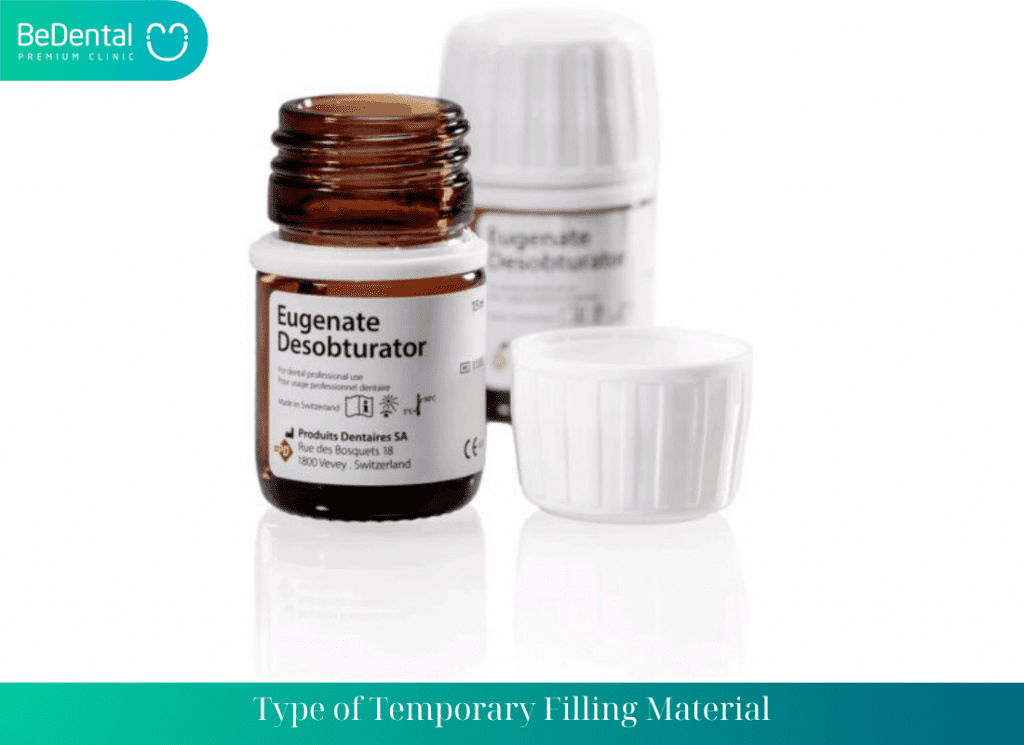
The above information should help answer whether a root canal filling causes pain. Wishing you a smooth and successful root canal treatment!
Conclusion
Tư vấn chuyên môn bài viết:
BÁC SĨ DƯƠNG THỊ THÙY NGA


 Tiếng Việt
Tiếng Việt 한국어
한국어 日本語
日本語 中文 (中国)
中文 (中国)



